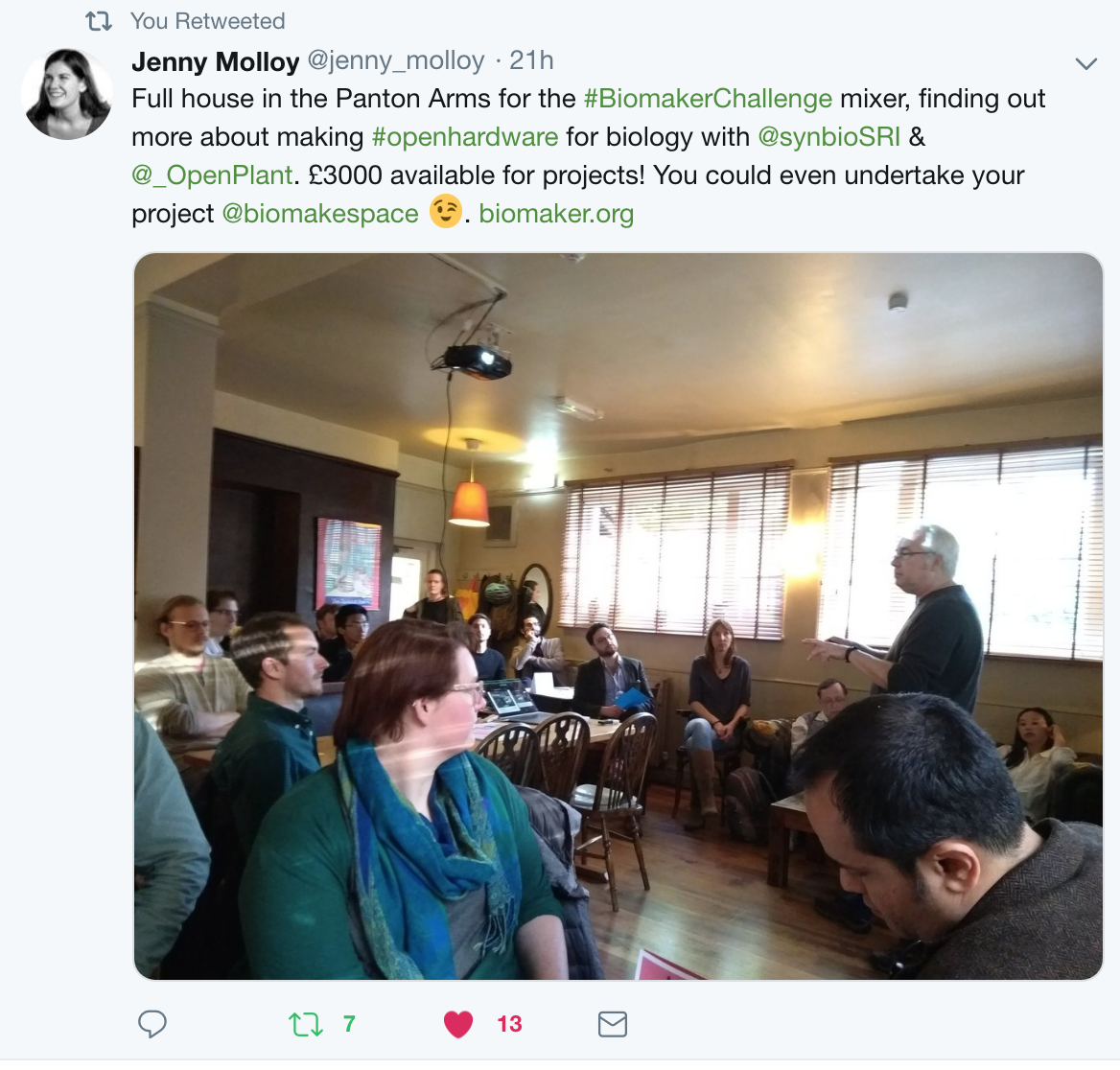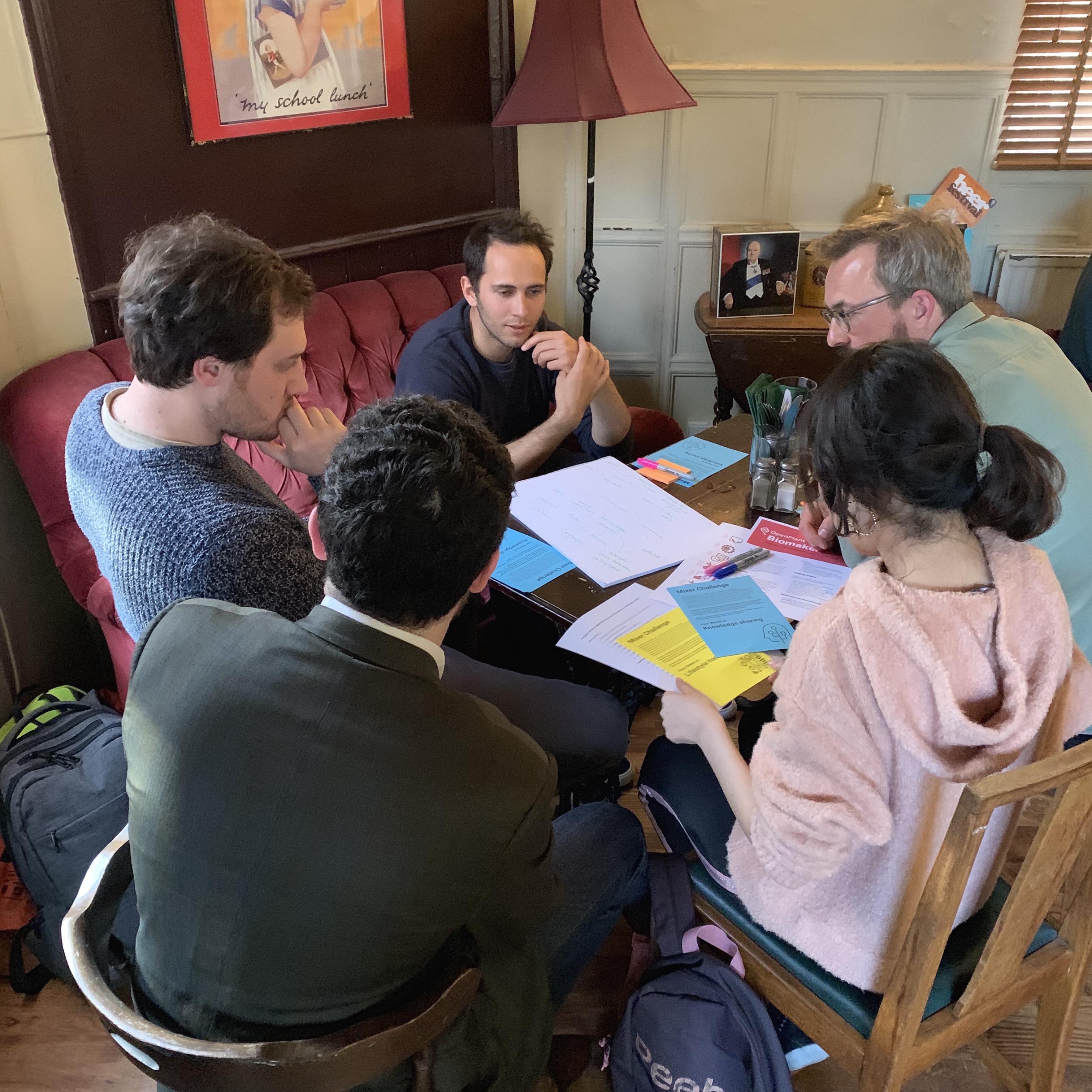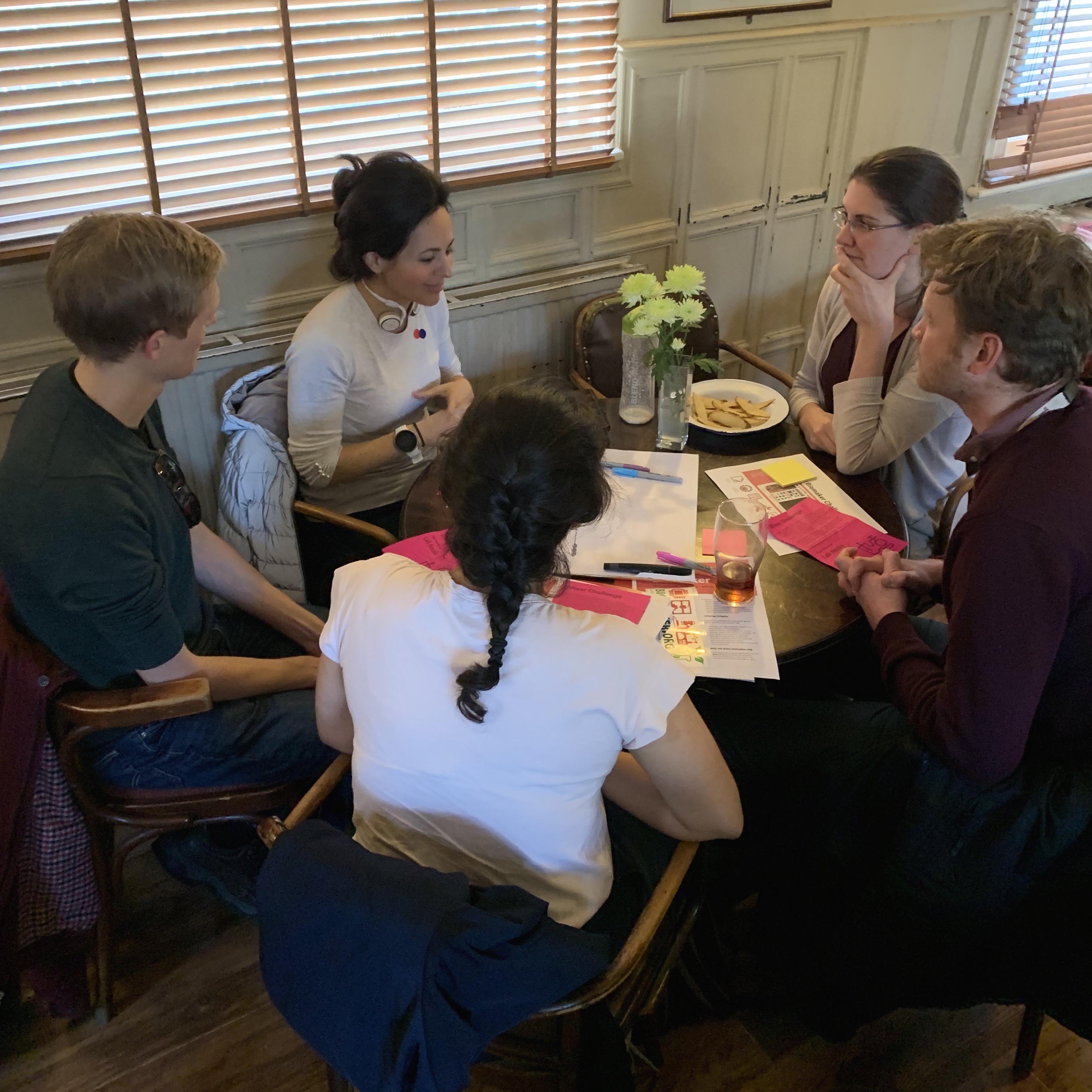Submitted by Administrator on Fri, 26/04/2019 - 15:55
OpenPlant Biomaker is a five-month programme challenging interdisciplinary teams to (i) build low-cost sensors and instruments for biology or (ii) develop a biological resource or outreach project with up to £3000 support. As we are about halfway through the call, and following a well-attended mixer session, there are now several UK and international researchers looking for collaborators before the call closes on Monday 13 May! Who they are and how to connect with them....
Biomaker Mixer on Thurs 25 April at the Panton Arms
Project pitches and requests for collaborators
Get in touch with directly via: Hackster discussion page
Valentyna Chernova>Biomaker
Hello! I’m Valentyna, a second year Natural Sciences (Biological) student at Cambridge. I am particularly interested in using organoid models to study cancer and development. I am looking for people with complementary skill-sets to work with!
One of my ideas is to work on an integrated and automated system to generate consistent organoids, particularly of neural structures, based on existing protocols.
Recent protocols by Qian et al (2018) show how a miniaturised 3D-printed spinning bioreactor set-up can allow the recapitulation of large neural organoids despite the lack of vasculature. This, however, does not allow researchers to establish further inductive gradients to study the progression of the formed neural organoid, as is possible with the three-layer gradient (3-LG) technique (Alvez-Lopez et al, 2018).
Combining these two methodologies, while allowing researchers to validate the culture by microscopy without damaging the organoid, is a massive challenge, but something I believe would make a truly interesting project!
If you are interested, please send me an email at vc356@cam.ac.uk.
Harry Akligoh>Biomaker
Hi everyone am Harry. Am a researcher with the Open Bioeconomy Lab and the lead for the Hive BioLab in Kumasi, Ghana. We're working on a number of projects including building a smart sterile hood for BSL1 procedure, a solar powered battery pack for electrophoresis and a urine Colorimeter for urine analysis using xod and 3D. We're looking for teams in Cambridge or Norwich that will be interested to team up and work with us to submit a proposal. You can reach out to me on harryakligoh@gmail.com, h.akligoh@openbioeconomy.org, harry@kumasihive.com
nanocastro>Biomaker
Hi Biomakers!
We are a group of researchers from Chile and Argentina and we are looking from someone from Cambridge or Norwich to teamup and work on a project of DIY yeast monitoring for brewers.
Counting and pithching the right amount of yeast is really important for brewers (ie. quality assurance, consistent production scheduling, cost savings from robust in-house yeast handling, re-use & propogation, precise fermentation control)
We already made some microscope prototypes to count yeast. You can take a look at our project here
We are currently working with the brewing community of Valdivia (Chile) and Mendoza (Argentina).
If you are interested please drop us a line here
Regards
Nano Castro
GITLAB
Fernando Castro / BrewerMicro
Microscopio para monitoreo de levaduras
Pawel Mikulski>Biomaker
Hello Biomakers! I'm a postdoc from JIC, Norwich, interested in algae biotechnology. I'm looking for participants willing to team up (or already established team) for a project related to bioreactors. As one of the ideas, would anybody be interested in fluorescence live measurements in liquid microorganism cultures? Please find brief description below:
Fluorescence live measurements in liquid cultures
Introduction & Problem
Algae bioreactors are great source of valuable compounds. The information about how fast such compounds accumulate and under which conditions is clearly of significant importance to both, academic research and industry. The current set-up, however, doesn't allow to easily track the dynamics of compound synthesis and usually involves manual sampling of small culture volumes for the relevant tests.
Solution
What can come with an aid to the problem is a device that would combine:
a) flowcell that automatically pumps in and out small volumes of bioreactor culture
b) suringe containing a stain used to label compounds of interest (for example: dyes such as Nile Red or Bodipy, which label triacyloglycerol)
b) light lamp/sensor that excites and measures the intensity of dye fluorescence
Such device could be used as a side module of bioreactor or as a probe even dipped inside it. In the second scenario, the device could be used also to take measurements in the field – lakes, open ponds etc.
Best,
Pawel
Emily Bennett>Biomaker
Hi everyone, I'm an imperial college based synthetic biology PhD student working on CRISPR-based systems for optimising gene expression. I am looking to join a team with complementary skillsets based in cambridge for this years competition. I have won two hackthon-style competitions this year as part of teams at Imperial college, the Dyson Makeathon and the MSF makeathon which were focused around arduino-based small electronics (portable incubator) and app development (colony counting based on augmented reality).
Please contact me if you are interested in working together!
----
The OpenPlant Biomaker challenge is a great opportunity to learn new skills, collaborate with an interdisciplinary community and, in a short amount of time, develop tools and resources that are useful for real-world applications. Tools and resources developed during the Biomaker Challenge must be openly documented and made freely available. Whether you're a biologist, engineering, designer, maker, or just curious to get involved, we welcome you to apply.

Important links



